Source: en.iranwire.com
By Aida Qajar
Iran’s Ministry of Intelligence has redoubled its efforts to crackdown on businesses run by Baha’is.
In direct contradiction of government claims that it does not actively target Baha’is, Iran’s largest religious minority, IranWire has seen an updated list of banned Baha’i businesses.
In an attempt to thwart Baha’i businesses, the Ministry of Intelligence has recently updated the blacklist, which was first initiated in 1991, and distributed it to the security departments of companies and contractors to prevent them from conducting business transactions with Baha’is. Reformist website Saham News published a recent blacklist in June 2015, after obtaining access to the classified documents.
When international sanctions were lifted, countries around the world looked to Iran for investment opportunities. Now the Iranian government is aggressively trying to exclude Baha’i businesses from the potential economic benefits of the nuclear deal and last year’s agreement with the United States and five other world powers.
In Iran, companies’ security activities come under the supervision of the Ministry of Intelligence. In 1991, the Supreme Council for Cultural Revolution ordered the ministry to draw up a list of Baha’i-run businesses in an effort to “block their path to growth and development.”
The Supreme Council for Cultural Revolution approved the original list on February 5 and February 9, 1991, sending them off for final approval from Supreme Leader Ayatollah Khamenei’s chief of staff, Mohammad Golpayegani. The files set out a clear strategy for blocking Baha’is from making economic advances. Crucially, they also set out Khamenei’s plan to ban Bahai’s from pursuing further education, a ban that is very much in place today.
Following the Supreme Leader’s order to devise a blacklist, the government stepped up efforts against Baha’i businesses and economic opportunities in as broad a sense as possible, dismissing Baha’is in senior positions at big companies and removing them from government offices. A number of Baha’is had been Western-educated and worked in the electronic and oil industries. Among the prominent business professionals to lose their jobs was the Baha’i director of the huge engineering company Siemens in Shiraz; he later opened a less prestigious — and less lucrative — business making canes and walkers.
Like the ex-Siemens director, other Baha’is turned to small businesses to make a living, and over the last two decades have successfully re-entered Iran’s larger economy to an extent. Some Baha’i business entrepreneurs have even made a name for themselves outside Iran. Many of them have specialist expertise that could be of good use to government agencies, including the Ministry of Energy. But in Iran, the government has effectively issued authorities with a license to persecute and oppress Baha’i businesses, whether they are small companies or larger businesses dealing in major financial transactions.
The government bans Baha’is from working on a range of projects, including building dams, constructing factories, building roads and gas and oil projects. Each year, authorities circulate the list of banned Baha’i businesses to all government agencies, as well as to the country’s biggest companies.
Since a big sector of the market is controlled by the government — more than 80 percent of contractors are wholly or partially state-owned — companies owned by Baha’is or that hire Baha’i employees face huge obstacles. State-owned agencies must put all purchases and sales up for public bidding, and any company included on the blacklist will be prevented from taking part.
The Small-town Effect
Occasionally, Baha’is are able to escape the attention of the government and secure work in small private companies in big cities. But in smaller towns, they face threats, and are often eventually fired or forced to resign.
One Baha’i who worked for a private company in Tehran told IranWire that nine of the 15 employees at his company were Baha’is. A few months after they started their work, the company’s president told them that the Ministry of Intelligence had given him a warning, and told him he must reduce the number of Baha’i people he employed. Following this, some Baha’i employees voluntary resigned so that the company would not suffer.
There are frequent reports of Baha’i shops being forced to close in both larger cities and smaller towns. Authorities regularly cite violation of official opening hours as the reason for closure, after Baha’is “illegally” close businesses on Baha’i holidays. Currently most Baha’is in small towns work as mechanics, shopkeepers and jobs that ensure they are kept out of the public eye. These job are often badly paid, but despite often being qualified to work in more senior jobs, many Baha’is have found that it is easier to take on a job that will simply allow them to get by.
“The authorities do whatever they can think up to deny prosperity to Baha’is,” a Baha’i businessman who often travels to Iran told IranWire. “They tell them: ‘make enough money so you will not die.’ They put enormous pressure on Baha’is so that they will leave Iran one by one. They want to remove the problem, not solve it.”
The businessman said with the new economic environment just taking shape, there is a chance for the Bahai’s to prosper. “The less control the Ministry of Intelligence has over the economy, the easier it will be to conduct business. This would be better for us.” But if the ministry continues to oversee the work of Iran’s state-owned contractors, doors will remain closed to Bahai’s, and the discrimination against them will continue.
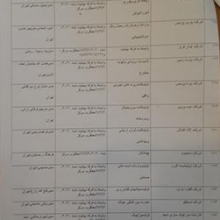
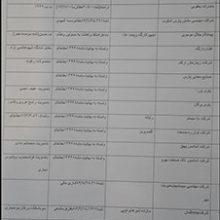
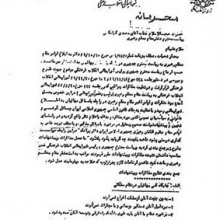
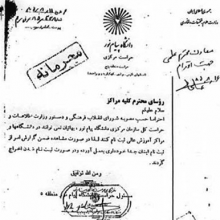
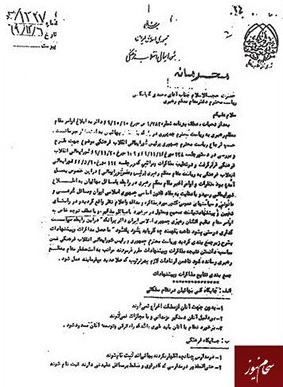

January 31, 2016 1:13 am
God bless the Baha’is with the most great justice. I admire the strength of the persecuted who live to God given values while those who are in power sink to the lowest abyss of ignorance.
February 3, 2016 10:58 pm
The biggest Human Rights mistake by the West was to remove the economic sanctions on the Mullah’s of Iran. SHAME on countries that are lining up to do bu$$ine$$ with the Islamic Government murderers, while they brutalize the minorities and women in Iran.
Obviously $$$ has a lot more value than Human Rights for most governments on the planet.